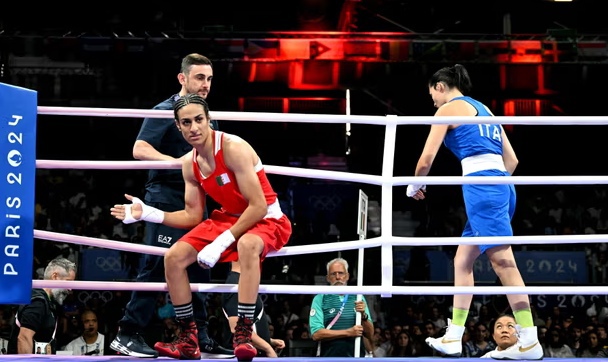Thomas Bach surprised everyone with the statement that the International Olympic Committee (IOC) does not have a scientifically proven method for determining the gender of athletes.
The IOC chief accused the International Boxing Association (IBA) that they have no proof that athletes Imane Khelif of Algeria and Lin Yu-ting of Taiwan failed the gender test. Bach told media:
“I looked at the transcript of the press conference of this organisation – it wasn’t even clear there what tests and what results were being talked about. In any case, what was reported there is not consistent with the science.”
Khelif failed to pass the gender test at the IBA World Championships in India a year ago. Also, Taiwan’s Lin Yu-ting failed a similar test at that championship. The IOC subsequently approved both athletes to participate in the Games.
Italy’s Angela Carini refused to continue her fight against Khelif. The fight lasted 46 seconds. During the fight, Carini asked for a stoppage and said she would not continue the fight. She said, refusing to shake hands with her opponent at the end of the match:
“I’m terribly hurt, I don’t want to continue. It’s unfair.”

Italian Prime Minister Giorgia Meloni called the fight unequal and called for athletes with male genetic traits not to be allowed to compete in women’s events.
Khelif won Olympic gold in the women’s 66kg. In the final bout of the Olympic tournament, Khelif faced China’s Yang Liu. The Algerian representative was awarded the victory by unanimous decision of the judges.
The IBA conducted a gender text for “Algerian boxer” Imane Khelif in 2022 and the results were in line with males biologically, vice-president and former IBA general secretary Istvan Kovacs noted. Kovacs said in an interview with Hungarian newspaper Magyar Nemzet:
“The problem was not Khelif’s testosterone level, because it can be corrected, but the result of the gender test, which clearly showed that Iman is male from a biological point of view.”
Kovacs also added that the IBA conducted tests for four other boxers who gave the same result. This information was sent to the IOC, but they did not react in any way.
Last week, IOC chief Thomas Bach said he would not be re-elected in 2025. He said:
“As a result of deep reflection and extensive discussions, including with my family here in the room, I have come to the conclusion that my mandate should not be extended beyond the term stipulated in the Olympic Charter.”
The IOC postponed a decision on Bach’s term extension in July. At that time, a decision on an amendment to the Olympic Charter to allow the German’s powers to be extended was not accepted by the organisation’s legal affairs commission and was postponed until 2025.
Last October, several IOC members at the organisation’s session in India suggested that Bach should not resign after his second term expires in 2025.
Bach has been a member of the IOC since 1991, he led the organisation in 2013 for eight years and then stayed on for a new four-year term. His term expires in 2025. He is the 1976 Olympic champion in team foil.
